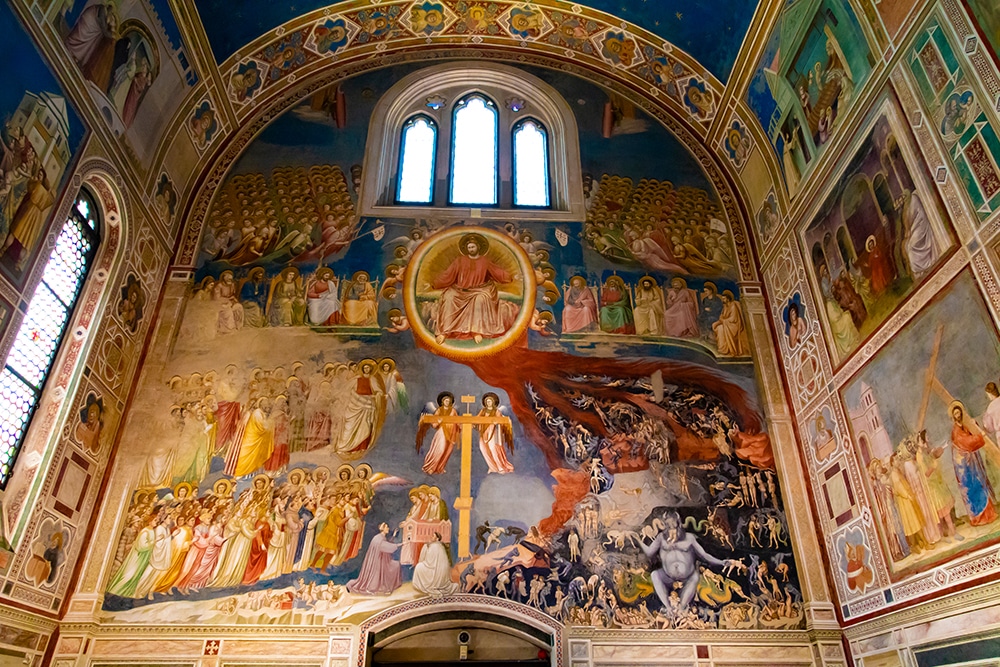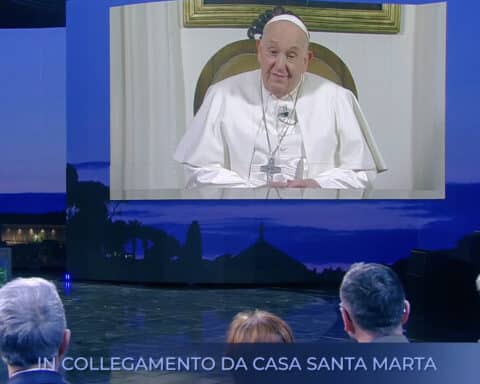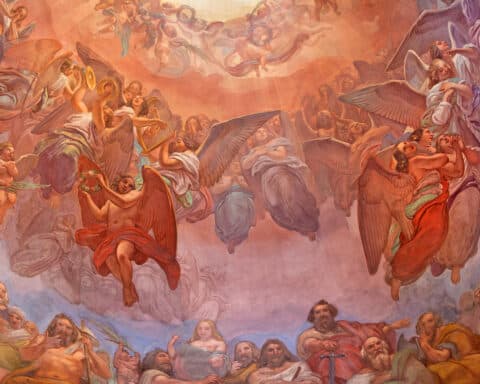Question: How can someone who makes it to heaven be happy knowing that a loved one is in hell?
— Barbara Allison, Charlottesville, Virginia
Answer: If a loved one is not in heaven, it is not as though God showed no mercy to them. He offered every necessary grace to be saved. And this fact fulfills mercy. As for justice, it is not simply about punishment. God’s justice is his fidelity to his promises. At the heart of his promise is his call — not his demand — to follow him. He knocks, he does not barge in (cf. Rv 3:20).
That some souls are not in heaven is because they preferred the darkness to the light of God’s truth. It is simply not true that everyone desires to go to heaven. This is because heaven is not a designer paradise on our own terms. Heaven is the fullness of God’s kingdom with all its truths and parameters. It is about what God loves and who God loves. It is about values and virtues, such as forgiveness, love of one’s enemies, chastity, the worship of God and a focus on him (not me and what I want).
But there are many who do not want some or all of the sorts of virtues and values just mentioned. They do not want to love their enemy, they want vengeance, not forgiveness, chastity is unwanted, and the worship of God is boring to many of them who often skip church services for just that reason. Such souls as these who have constituted themselves in a way that is averse to what heaven is, would not be happy in heaven. One of the saddest things about the souls in hell is that they would be more miserable in heaven. St. Thomas also teaches, “the damned will not repent of their sins directly, because consent in the malice of sin remains in them; but they will repent only indirectly, angry at the punishment inflicted on them for sin” (cf. Summa Theologica, Supplement, q 98, art. 2).
The saints in heaven surely know this and can rejoice in God’s justice and respect for the freedom of loved ones who sadly preferred the darkness to light.
Striking the breast
Question: What is meant by the three repetitions in the Confiteor: “Through my fault, through my fault, through my most grievous fault”? We strike our breasts three times. Many Catholics also strike their chests three times when saying the words Hail Holy Queen: “O clement, O loving, O sweet Virgin Mary ….” Could you enlighten us? Where did this custom begin?
— Kat Hall, via email
Answer: The ancient Fathers of the Church attribute several meanings to this practice of striking the breast. St. Augustine says: “No sooner have you heard the word ‘Confiteor’ (I confess) than you strike your breast. What does this mean except that you wish to bring to light what is concealed in the heart, and by this act to cleanse your hidden sins?” (Sermo de verbis Domini, No. 13). St. Jerome says, “We strike our breast because the breast is the seat of evil thoughts: we wish to dispel these thoughts, we wish to purify our hearts” (“Ezekiel,” c. xviii).
Even more ancient sources like the psalms tell us we are sinners, when we approach the throne of mercy to chasten or rebuke our heart and offer it as a sacrifice to God, who is “healing the brokenhearted, and binding up their wounds” (Ps 147:3).
In the current form of the Mass, the striking of the breast is greatly reduced. In the Traditional Latin Mass, however, the practice occurs numerous times. During the Confiteor at the phrase “through my fault” (three times); once, during the Canon at the Nobis Quoque Peccatoribus (“and also to us sinners”); at the Agnus Dei (three times); and at the Domine, Non Sum Dignus (“O Lord I am not worthy”, also three times). Interestingly, at the Agnus Dei, in the requiem Masses, the striking of the breast is omitted, to show that the celebrant is thinking of the departed more than of himself.
As for the tradition of striking the breast at the end of the Hail Holy Queen, the tradition is likely the same. The prayer itself is somewhat penitential in nature wherein we describe ourselves as “poor banished children of Eve,” as “exiles” and as those who mourn and weep in this valley of tears. We strike the breast as if to indicate that we depend, therefore, on her being clement, loving and sweet to us who are sinners.
Msgr. Charles Pope is the pastor of Holy Comforter-St. Cyprian in Washington, D.C., and writes for the Archdiocese of Washington, D.C. at blog.adw.org. Send questions to msgrpope@osv.com.






